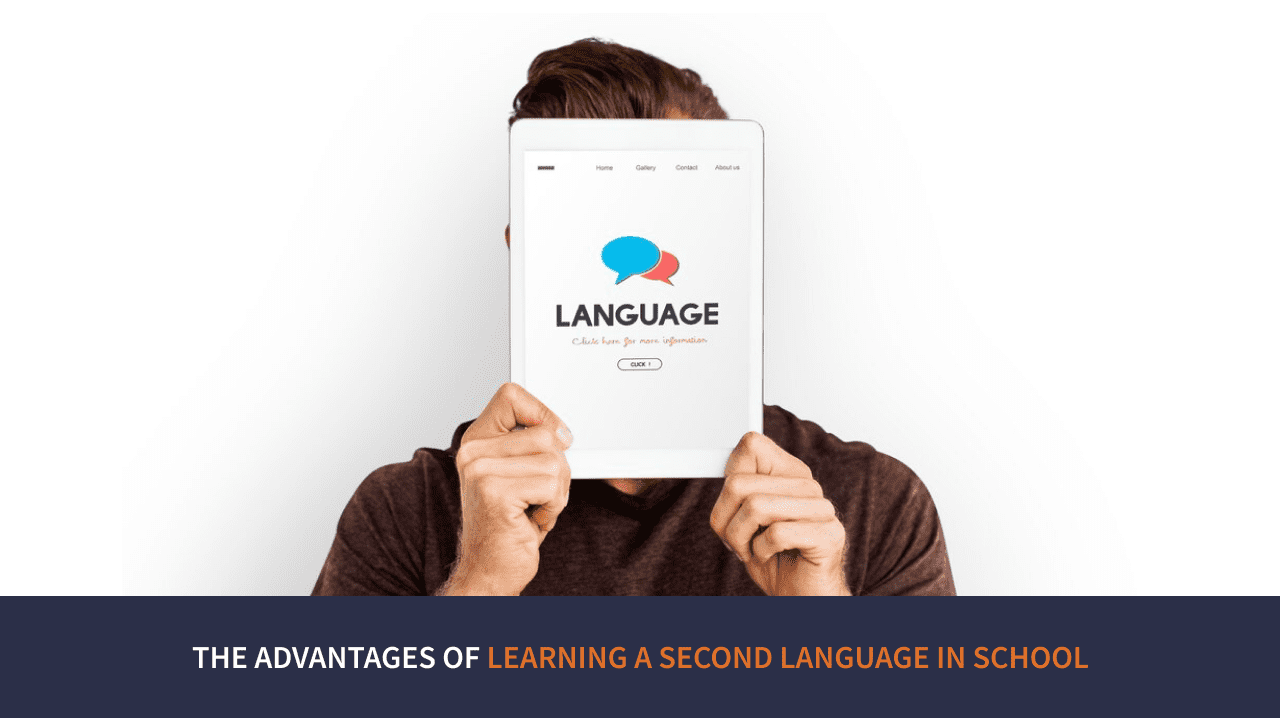Second Language in School is Essential for Students

Introduction:
In an interconnected world, the capacity to communicate in more than one language is a strong resource that goes past semantic proficiency. The advantages of learning a subsequent language in school stretch out a long way past the domain of communication, impacting cognitive, cultural, and academic parts of a student’s turn of events. In this investigation, we disentangle the ten convincing advantages that highlight the significance of integrating second language procurement into the instructive landscape.
1.Cognitive Lift:
Learning a subsequent language upgrades cognitive capacities, encouraging more keen critical thinking abilities, further developed memory retention, and uplifted inventiveness. This cognitive lift results from the psychological aerobatic expected to explore between languages.
2.Academic Greatness:
Students capable in a subsequent language frequently display higher academic execution. Reviews show that multilingual people will quite often beat their monolingual companions in government sanctioned tests, exhibiting advanced scientific and decisive thinking abilities.
3.Cultural Sensitivity:
Diving into the domain of a subsequent language opens an entryway to an improved cultural encounter. It goes past semantic complexities, filling in as a significant investigation into the traditions, customs, and perspectives woven into the texture of that language. As students set out on this etymological excursion, they all the while navigate different cultural landscapes, cultivating an increased feeling of cultural sensitivity. Language, going about as a course to custom and heritage, permits students to acquire experiences into the subtleties of communication formed by cultural settings.
This vivid experience fabricates cultural mindfulness as well as develops a real appreciation for diversity. Students foster a more extensive comprehension of the world, outfitted with the capacity to explore intercultural communications with beauty and regard. Besides, the procurement of a subsequent language sustains a global perspective. It gets students ready to engage definitively in an interconnected world, advancing empathy and understanding. This cultural sensitivity turns into a foundation for manufacturing significant associations, both locally and globally.
Eventually, learning a subsequent language rises above etymological proficiency; it turns into a groundbreaking excursion that shapes people into culturally mindful, compassionate residents arranged to explore the intricacies of our different and interconnected global local area.
4.Upgraded Communication Abilities:
Dominating a subsequent language improves communication abilities, in the language advanced as well as in the local language. The openness to different phonetic designs and articulations refines a student’s capacity to express considerations all the more plainly and really.
5.Extended Vocation Valuable open doors:
In the present global work market, bilingualism is a profoundly sought-after expertise. Proficiency in a subsequent language expands vocation skylines, opening ways to worldwide open positions and upgrading employability across different enterprises.
6.Supported Memory Retention:
Learning a subsequent language requires retention and review, invigorating the mind’s memory communities. This psychological activity helps language securing as well as adds to by and large superior memory retention across different subjects.
7.Flexibility in Thinking:
Multilingual people show improved cognitive flexibility. Exchanging between languages requires adjusting to different syntactic designs and jargon, encouraging a deft and versatile outlook that reaches out past language learning.
8.Uplifted Consciousness of Language Design:
Learning a subsequent language gives a near perspective on language structures. Students gain a more profound comprehension of sentence structure, syntax, and semantics, supporting their grip of language mechanics in both the learned language and their local tongue.
9.Cognitive Reserve Against Maturing:
Studies recommend that bilingualism adds to building a cognitive reserve, possibly deferring the beginning of age-related cognitive decay. The psychological readiness created through language learning goes about as a defensive element against neurodegenerative circumstances.
10.Certainty and Strengthening:
Dominating a subsequent language is an extraordinary excursion that ingrains a significant feeling of achievement, raising students’ certainty and confidence higher than ever. Past the semantic ability gained, the capacity to explore and impart successfully in numerous languages turns into a strong wellspring of strengthening. This freshly discovered expertise improves academic encounters as well as develops an uplifting perspective towards defeating difficulties across different features of life.
Students rise up out of the bilingual excursion with an elevated confidence that rises above language proficiency — engaging them to handle intricacies with resilience, embrace different perspectives, and explore the interconnected global landscape with an identity strengthening. Generally, the obtaining of a subsequent language turns into a foundation for building a sure and engaged age prepared to confront the open doors and difficulties that look for them in the powerful embroidery of life.
Conclusion:
In conclusion, the advantages of learning a subsequent language in school reach out a long ways past etymological proficiency. From cognitive improvements and academic greatness to cultural sensitivity and extended profession open doors, the effect of bilingualism on a student’s holistic improvement is evident. As training keeps on developing in a globally associated world, coordinating second language securing into the educational plan arises as an academic need as well as an extraordinary interest in forming balanced, culturally mindful, and cognitively proficient people. The excursion of learning a subsequent language turns into a passage to a future where phonetic diversity isn’t simply an expertise yet a powerful power forming the up and coming age of students.

